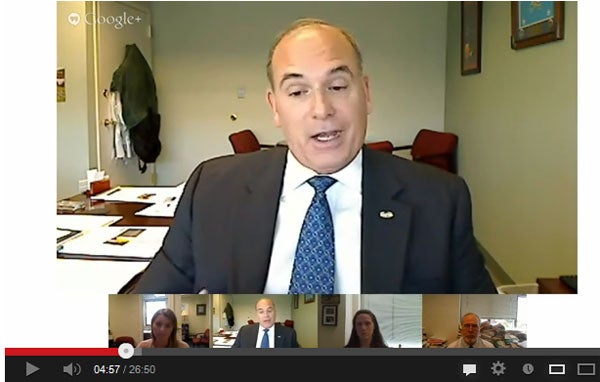In a 26-minute chat, Heritage experts discussed the unraveling situation in Syria and why President Obama’s widely publicized plan for limited missile strikes is not the best course of action for the United States.
Having carelessly established a “red line” for intervening in the Syrian civil war without a clear strategy or appropriate course to protect U.S. interests, the President has now dumped the whole mess in the lap of Congress.
Heritage’s Middle East expert Jim Phillips provided background on the Syrian civil war and the regional actors actively involved in propping up the Bashar al-Assad regime. According to Phillips, “Syria is Iran’s closest ally” and has a vested interested in keeping Assad in power.
Steven Bucci, director of Heritage’s Allison Center for Foreign Policy Studies, explained that Heritage opposes using force in Syria because “the President’s plans will not help this particular situation.… [It] makes us feel better because we did something.”
In terms of our national security interests, Bucci clarified that “it is not as scientific as it sounds—there is not a direct national security threat to the United States…allies, yes—but not to the U.S.”
Charlotte Florance, a research associate in the Allison Center, highlighted the humanitarian dimensions of the Syrian civil war and the need to support U.S. friends and allies in the region. Florance pointed out that “currently there are over 2 million refugees living—dispersed between Turkey, Lebanon, Jordan, and Iraq—Jordan carrying the brunt [of the refugee crisis].”
The Heritage experts also discussed problems emanating from the fractious Syrian opposition. Phillips explained how some of the 1,200 rebel groups fighting in Syria have become publicly linked to al-Qaeda.
Bucci pointed out how many of the challenges the U.S. faces in vetting the various rebel groups in Syria are the same challenges the U.S. faced in Iraq when it found difficulty separating the good groups from the bad and the ugly.
Florance also explained how al-Qaeda-linked groups are building political support in Syria’s ungoverned region by providing goods and services to people in need.
As Phillips pointed out, serious uncertainties remain about the President’s strategic aims with respect to the use of military force. Joint Chiefs chairman General Martin Dempsey was unable to articulate a political goal behind the use of force in Syria during a recent Senate Foreign Relations Committee hearing, a clear indication that the American people deserve a better plan than what the President is giving them.
